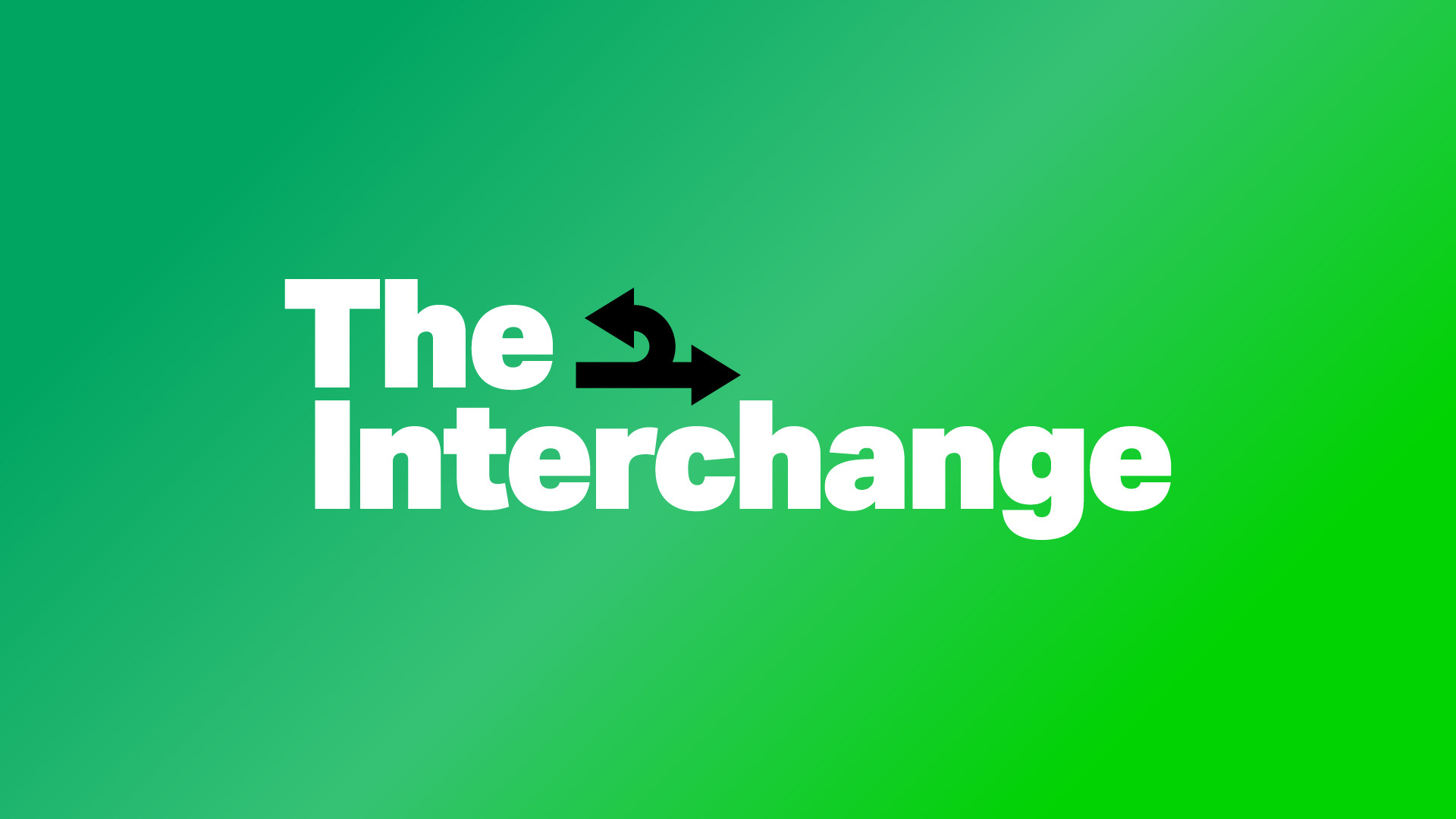Fintechs go shopping
Welcome back to The Interchange, where we take a look at the hottest fintech news of the previous week. If you want to receive The Interchange directly in your inbox every Sunday, head here to sign up! We’re back and making up for lost time after taking off for Thanksgiving. Here we go!
Webull, Yieldstreet and NomuPay go shopping
Recently on the Equity Podcast, Alex Wilhelm and I talked about how M&A activity this year really didn’t happen at the pace we expected. The year started out strong, with a string of acquisitions taking place in the space. But then things slowed down considerably.
Well, I guess this week I am eating my words as we at TechCrunch reported on three different M&A deals.
First up, Webull announced that it had acquired Flink, a Mexican stock trading app. I first covered Flink in 2021 when the company raised a $57 million Series B led by Lightspeed Venture Partners.
Flink launched its app in 2018 with a wallet service, a digital and physical global debit card backed by Mastercard, and in 2020, it began offering the ability to buy and sell fractional shares from 30 pesos, without commissions, for NYSE-listed stocks. As of August 2021, it had 1.6 million users. It is not known how many it has today.
At that time, Lightspeed Partner Mercedes Bent told TechCrunch that her firm “fell in love” with Flink’s mission and impact on the country’s “financial ecosystem.” It was also impressed by the company’s unique features, including allowing Mexican investors to access the U.S. stock market and invest fractional shares.
Looks like Lightspeed is not the only entity to have fallen in love with Flink. Anthony Denier, head of the Americas and Europe for Webull, said the buy marks his company’s expansion into the Latin American market. Notably, he added that Webull anticipates using Mexico as a “springboard” into greater Latin and South America, where it believes “there is a strong desire among retail investors to access global markets.”
You can hear the Equity podcast crew drill down more on the topic here:
It’s important to note that this isn’t the only big fintech acquisition out of LatAm by a U.S. company this year. In late June, credit card giant Visa announced it was acquiring Brazilian payments infrastructure startup Pismo for $1 billion in cash in what is likely one of the largest fintech M&A deals taking place in 2023 so far.
Both Visa and Webull likely had plenty of startup options to consider when deciding to acquire Pismo and Flink, respectively. Visa in particular could have picked up a company located anywhere in the world. Both companies chose to acquire a LatAm company, and that is not insignificant.
As you can see, although funding in the region has dropped, I’m still bullish on the region. I believe there is so much opportunity for innovation in the region. The most exciting aspect of fintech to me is the ability to boost inclusion. And it’s doing that and more in LatAm.
As mentioned above, Webull acquiring Flink was not the only M&A deal this week.
I also wrote about Yieldstreet’s plans to scoop up Cadre, an online marketplace connecting accredited real estate investors with operators. This wasn’t a huge shock, as the deal was rumored to be in the works for a few months. But it’s interesting that Cadre — which was co-founded by Joshua and Jared Kushner along with Ryan Williams — was reportedly not doing very well. If true, this is just one example of a fintech company taking advantage of market conditions to grow in a specific area without having to reinvent the wheel. More on that deal here.
Over in Europe, TC’s Ingrid Lunden reported on Dublin, Ireland–based NomuPay — the payments startup that was formed out of some of the healthier pieces of the dramatically failed fintech Wirecard — acquiring Total Processing, a startup out of Manchester that builds payment processing solutions for functions like recurring payments, risk management, PCI (data security) compliance and payment integrations.
NomuPay, Ingrid wrote, is paying around $35 million for Total Processing and says that the total value of the company is now $135 million. More on that here.
— Mary Ann
Want to be the next Mint? You may want to rethink that strategy
When Intuit announced it would shut down personal finance app Mint in January, it was a chance for competitors to grab a portion of Mint’s over 3 million users. However, one investor says companies shouldn’t try to be the next Mint.
Sheel Mohnot, co-founder and partner at Better Tomorrow Ventures, tweeted on X, “Heard of a few people building a new version of @mint now that Intuit shut it down. I wouldn’t recommend it if you want to build a venture-scale business. There aren’t that many people who want to actively manage their finances; startup graveyard is littered with PFM’s.”
Yes, Mohnot is most likely biased. He is, after all, an investor in finance tracker Albert. Speaking with me recently, Mohnot said years ago he looked at many of the concepts being built with the aim of competing with Mint — Albert included.
“Seven or eight years ago, there were a ton of funded companies, all seed-funded, with some even raising a Series A,” Mohnot said. “However, none of them hit any sort of scale with the PFM (personal finance management product). They all had to pivot into something else to make it work.”
It is widely reported that most Americans will have trouble if an unexpected $400 bill comes up. So actively managing your money — and a free product to boot — can be attractive. Except that, as it turns out, it isn’t.
Mohnot explained that Albert founders also had to shift strategy when they realized that people don’t actually want to manage their own money. They want a solution to do it for them.
“The AI manages their money, and there’s a lot more people who want that,” Mohnot said. “They have hundreds of millions in revenue to show that.”
So should companies try to be the next Mint? A free product, like Mint was, is most likely not going to yield a “venture-scale business,” according to Mohnot.
Like Albert, other companies are finding success with subscription-based finance tracking models. Just after Intuit’s announcement in early November, Monarch Money told me they saw the number of users joining its platform increase 20x. Meanwhile, Copilot told me they saw numbers spike 5x. Mohnot referred to both Copilot and Monarch as “good products” and does see some additional promising models here.
“Where I have seen some interesting companies is managing high-net worth people’s money because people are willing to spend a lot,” Mohnot said. “You have to either get a wide audience with a low-cost product or go up market and charge a lot of money. If you do have this PFM product, it has to be a suite of products.”
Since then, other personal financial apps reached out to tell me how their user base has grown in light of the Mint news:
- Eric Dunn, CEO of Quicken, said “Quicken Simplifi has seen the highest volume of user subscriptions since its launch in January 2020.”
- Customers at financial router Sequence grew by 30%.
- Bill organizer and budgeting platform PocketGuard said total registrations grew 3x while total revenue jumped 4x.
— Christine
Weekly News
Reporter Manish Singh writes about Warren Buffett’s Berkshire Hathaway exiting Paytm, ultimately taking a loss of 40%. Paytm is one of India’s largest mobile payments platforms and also provides access to loans and investments in mutual funds. Berkshire acquired a stake in Paytm five years ago. Since then, Paytm became a publicly traded company, but its shares haven’t performed well. Read more.
Buy now, pay later, thought to be a good way to buy high-priced items and pay down the cost in installments with little to no interest, has had its fair share of booms and busts over the past decade. Earlier this year, Mary Ann examined whether this concept was played out. However, BNPL companies are saying, “Not so fast,” and are working to breathe new life into the concept, even to expand it to other areas. Affirm, one of the pioneers of buy now, pay later, is among them. Christine spoke with head of product Vishal Kapoor to discuss how Affirm is doing this. Read the Q&A with Vishal.
Reporter Paul Sawers writes about Robinhood’s start-stop-start path to opening for business in the United Kingdom. This has been five years in the making, and those across the pond who signed up for the waitlist will finally get that access starting in 2024. Paul goes into how this all came about. Read more.
Editor Sarah Perez got to the bottom of what’s happening with a credit card and savings account partnership between Goldman Sachs and Apple. The Wall Street Journal reported this week that the deal was dead. And while there have been various media reports and other chatter claiming the relationship hasn’t gone according to plan, Apple told Sarah a different story. Read more.
Over on TechCrunch+, Greg Waisman, co-founder and COO at global payments infrastructure platform Mercuryo, gives some advice on how B2B startups can make the jump to a Series A in this challenging macro environment. Read more.
In public company news:
- Uruguay-based payments platform dLocal reported some positive third-quarter earnings, including an increase in year-over-year revenue of nearly 50%, buoyed by strong activity in Brazil and Mexico as well as in Africa and Asia. The company also reached a record total payment volume of $4.6 billion in the third quarter, up 69% from the same quarter in 2022. Catch up on what’s been going on with dLocal this year in Mary Ann’s story about its share price surge, the naming of a new co-CEO, and how the company rebounded following a short-seller attack.
- Fintech giant Intuit reported first-quarter earnings that included a boost in revenue to $3 billion, up 15% year over year. This was led by strong performance among both its ProTax, consumer and small business groups. During the quarter, Credit Karma’s revenue declined slightly. In April, reporter Jagmeet Singh wrote about Intuit’s growing pains as it embraced artificial intelligence. Read more.
Other items we are reading:
Atlanta-based tech firm Greenwood launches new investment platform
A bank watchdog crowned its first chief fintech officer. His work history was a web of lies and Jason Mikula took a deeper look at Prashant Bhardwaj’s résumé.
Stripe’s new service lets companies buy into carbon removal projects early
Standard Chartered becomes Checkout.com’s banking partner in MENA
Bluevine says business checking propels managed deposits to $1B
Funding and M&A
As seen on TechCrunch:
Candex lands $45M infusion to grow its procurement management business
Mozaic raises $20 million to build payment-splitting solution for creators
FrontEdge raises $10M in debt, equity from TLG, Flexport to facilitate trade for African exporters
Crezco aims to make integrating bill payments easier
Indy raises $44 million to simplify taxes and paperwork for freelancers
Seen elsewhere:
Peter Thiel-backed debt fund putting $30M in Exectras
Fintech startup CapitalOS raises $9M seed round and $30M in debt
Enfuce raises €8.5M in follow-on funding
Automated forensic accounting startup Valid8 Financial closes on $8.5M funding round
Two ex-dLocals start a startup that automates company tax payments with $5M

Image Credits: Bryce Durbin



